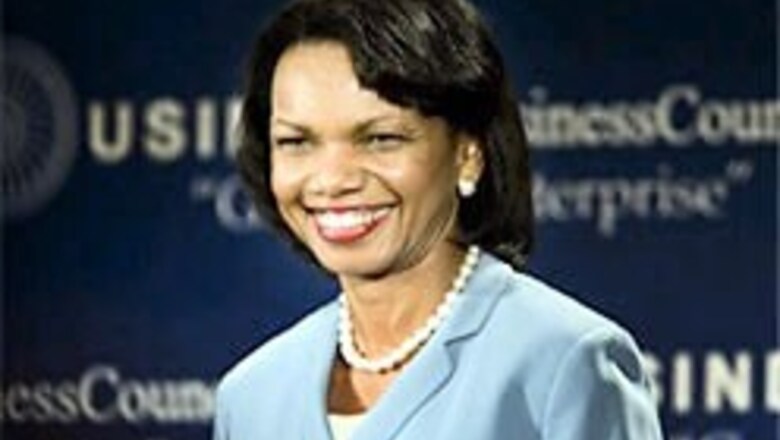
views
Washington: The landmark India-US civil nuclear deal received a resounding 86-13 approval from the Senate, but not before Secretary of State Condoleezza Rice had assured that a nuclear test by India will result in "most serious consequences".
As the Senate began a debate on the approval legislation Wednesday Rice sent a letter to Senate Majority Leader Harry Reid saying the Bush Administration would prefer a "clean legislation" with no fresh amendments, but also held out an assurance that a test by India would entail automatic cut-off of US cooperation besides several other sanctions.
"I understand that some Senators have questions about the impact of an Indian nuclear test on this initiative," wrote America's top diplomat who has been leading the administration's all-out push to get the deal done at the earliest.
"We believe the Indian Government intends to uphold the continuation of the nuclear testing moratorium it affirmed to the United States in 2005 and reiterated to the broader international community as recently as September 5, 2008," Rice said.
Appreciating Reid's consideration of the Bill "within such an extraordinary time-frame", Rice said they wouldn't be asking for such exceptional action if they did not believe it was necessary to complete an initiative on which both the Administration and the Congress have worked very hard and on a thoroughly bi-partisan basis since 2005.
Meanwhile at the White House, spokesman Tony Fratto said that President George Bush engaged as he was in telephonic conversations with lawmakers to win Congressional passage for the administration's $700 financial rescue plan, was also paying attention to the deal.
"And also one other thing to point to: This evening there will also be votes on the India civil nuclear agreement, and so we'll be paying attention to those votes also," he said.
At the State Department, Spokesman Sean McCormack said before the vote: "We have been working quite closely with both sides, the House and the Senate. The House has acted and it is now for the Senate to consider the measure."
"We would urge the passage of the legislation, as we have done in the past.
We think it's an important legislation that's good for the United States. It's good for the global non-proliferation regime, and it's good for the US-India relationship," he said.
There had been "No, no change of heart. No," on the part of administration on the deal said McCormack in reply to another question.
Asked if Rice had many phone calls to the lawmakers Wednesday, he said: "I don't believe that there were any phone calls today. But she's been quite active in working this issue over the past ..."
"We're hoping - we're hopeful for a positive vote. But again, each individual senator is going to have to express their views through their vote. And we hope the final tally is one that allows the legislation to pass," McCormack said.



















Comments
0 comment